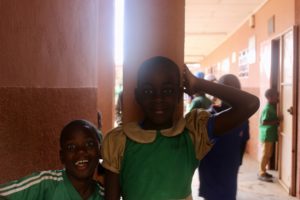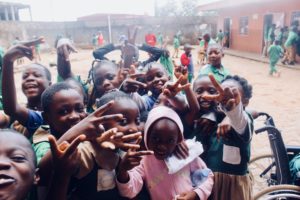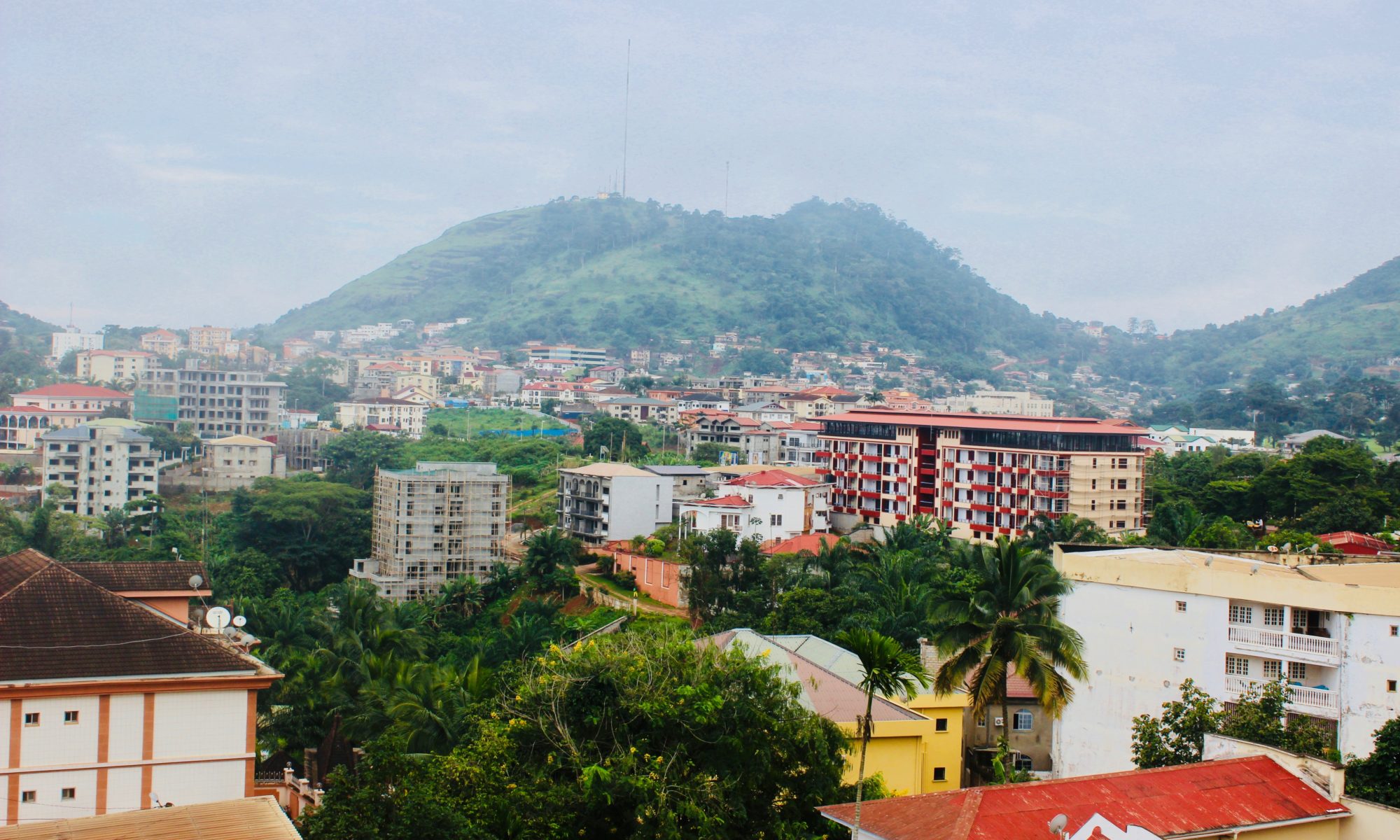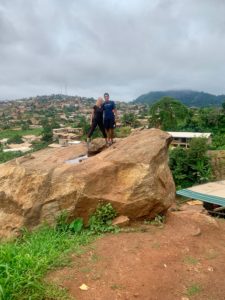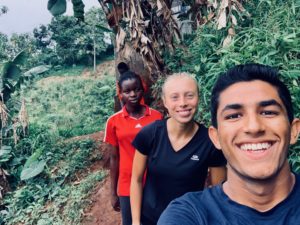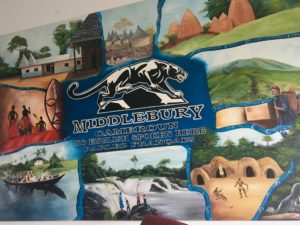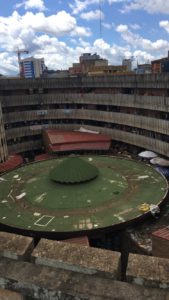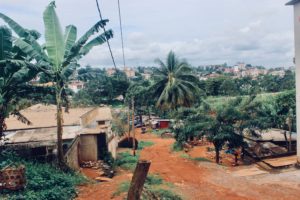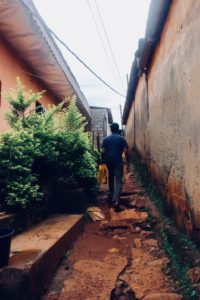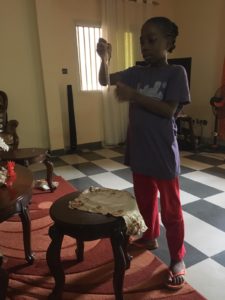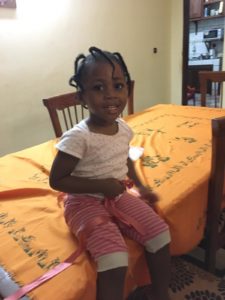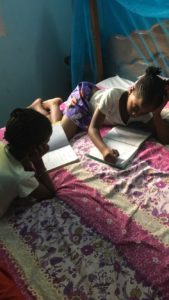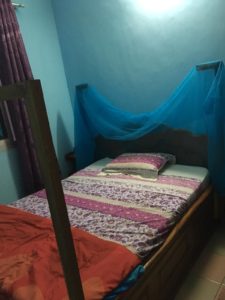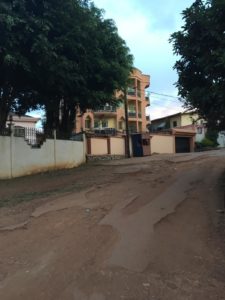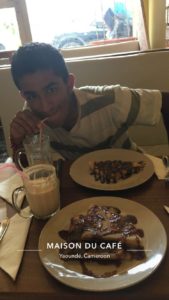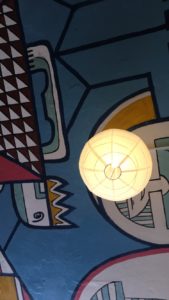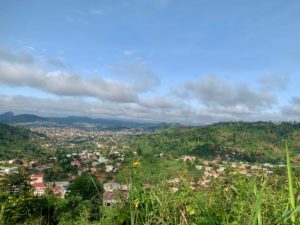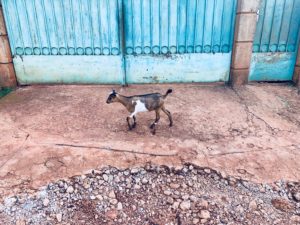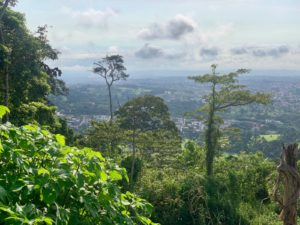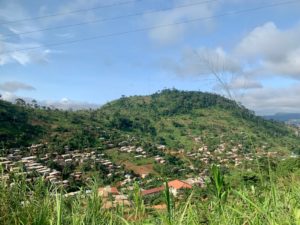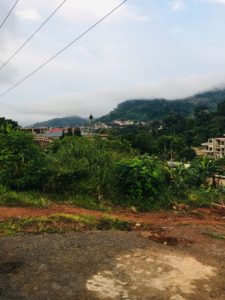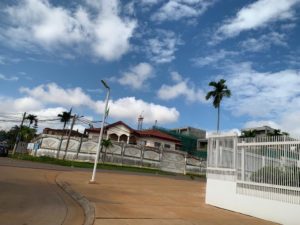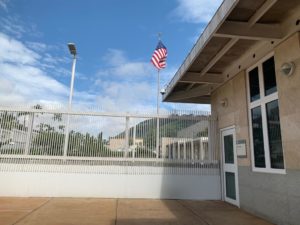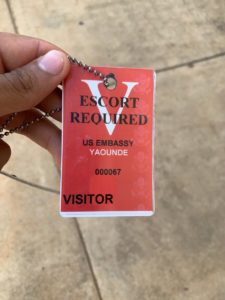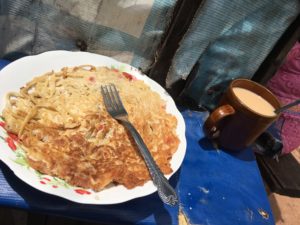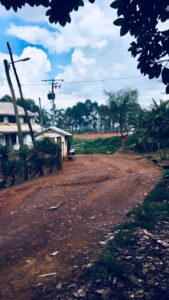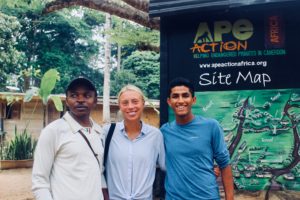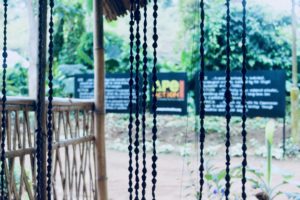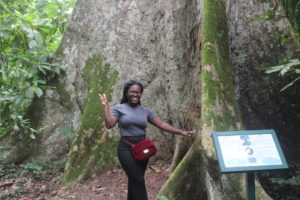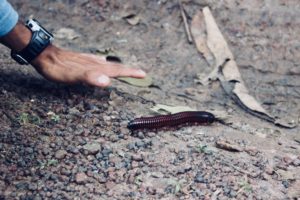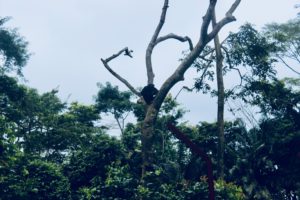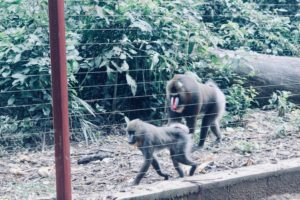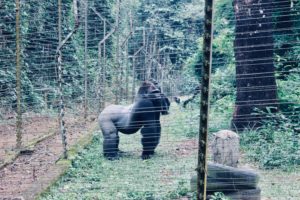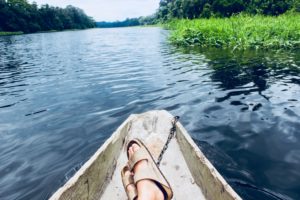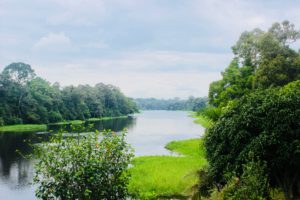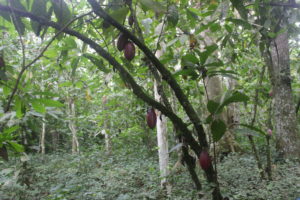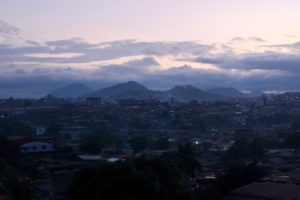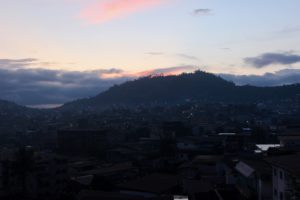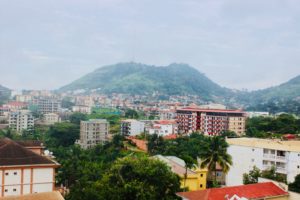If you didn’t know to look for Promhandicam specifically, you would almost certainly never know it was there. You might see more people in wheelchairs than you normally would on the street heading in and out of a small entrance, you might see mothers carrying disfigured children into the backseats of taxis out front or you might see a blind person exiting, fresh from an eye check-up. But other than these small clues, Promhandicam remains almost invisible to the rest of the population of Yaoundé. Promhandicam, in the simplest of terms, is a school for both disabled and non-disabled children. It is one-of-a-kind in Cameroon. This means that there are essentially two schools in one: the integrated school which teaches non-disabled children as well as disabled children who are advanced enough to be able to work and learn alongside them and the specialized school which teaches children who are severely mentally and physically disabled and/or disfigured. Some of the children from the specialized school will move up to the integrated school, some never will. But Promhandicam isn’t just a school. It also provides physiotherapy for physically disabled children, teaches braille and sign language, does eye exams and fits children for glasses, does rehabilitation and has a psychologist on-campus who works with children individually who have been through trauma.

My first visit to Promhandicam was overwhelming. I have had some experience working with disabled children in Kolkata, India, but not for an extended period of time like my internship at Promhandicam would entail. It happened to be recess when we arrived and it was pleasant chaos. To see the integrated school at work, was astounding and really showed me the power of an operation like this one. Children were playing a huge game of “Marco Polo”, clapping to give away their locations, because the blind students were able to play this as well. Others were playing hopscotch and Chinese jump rope – some had down syndrome or autism, some did not. We walked down the hill to the specialized school where we were immediately greeted by enthusiastic students wanting to hold or shake hands (Cameroonian handshakes involved snapping each other’s fingers), give hugs or kisses, ask us our names and drag us into a wild game of football, involving no ball, but an empty plastic bottle. The specialized students range greatly in age. Some are very young, five or six, and some are much older, in their upper teens. On my first day, I was assigned to the classroom labelled “Les Mignons” or “The Cuties”. All the specialized classrooms are labelled this way with “Les Anges” or “The Angels” being the next room, meaning that these students are ready to ascend up to the “sky” or the integrated school. The classroom where I worked was small and cramped with three wooden tables and enough chairs for the twenty students. My classroom was mostly frequented by non-verbal autistic students, but several students had severe physical deformities and one little girl was in a wheelchair and was extremely spastic.
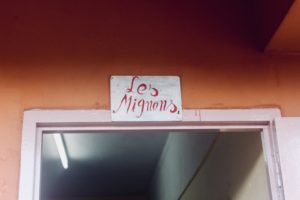
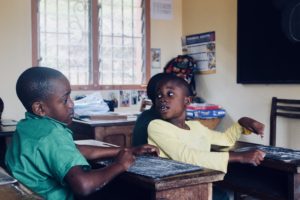
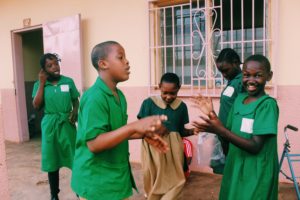
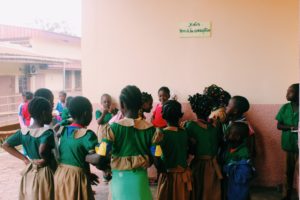
Let me start by saying, day one was hard. Before even thinking about forming relationships with the students, I had to figure out how to communicate with them when they often didn’t speak or even respond to my words. They could start crying at random moments, regularly would remove items of clothing and seemed to exist entirely in their own worlds. I felt like I would never be able to be of help to them, much less create a relationship with them. But after spending an entire day with them, I learned so much that I never would have known before starting. Farel, the girl in the wheelchair, was at the top of her class last year, and is as sharp as a knife. She was difficult to understand, but we were still able to chat about her family and my hair (which tends to be a hit in general here, my host sister likes to tear out clumps and play with them). At recess, the other classes came to hang out with me, tried to get me to buy them cookies from the little snack stand and generally dragged me around the courtyard by the hand.
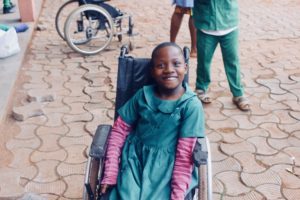
The faces of Promhandicam!
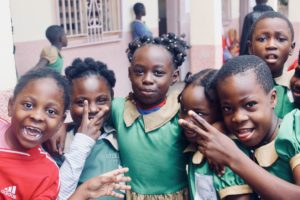
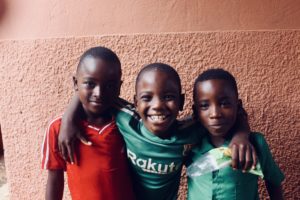
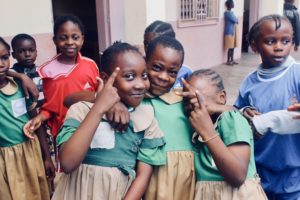
The part of my experience that is difficult to accept, is how the students are treated outside of Promhandicam. Handicapped children aren’t often seen around Yaoundé because they are either kept inside and mostly abandoned or often not allowed by their families or communities even to live. Handicapped children have almost no place in society, (much like albino people), there is little to no education available for them and even parents of such children, are often overwhelmed trying to make ends meet and have no idea what to do with them. One of the teachers at Promhandicam explained how frustrating it is for her because at the school, the children are taught how to wash, feed and clothe themselves, but when they go home, their parents tend to do everything for them, not understanding it is important to develop independence. She explained how some parents don’t believe their children have the capability to learn and progress or don’t know how to help them do so, choosing instead to treat them like infants forever. The teacher mentioned one autistic girl who was starting to talk in full sentences before the summer holidays, but upon returning, has completely retreated back into her own world and no longer speaks. The teacher is forced to start from square one.
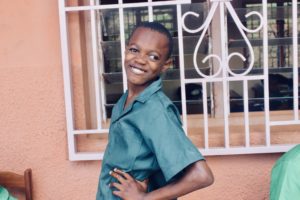
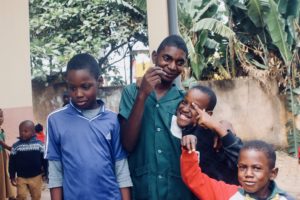
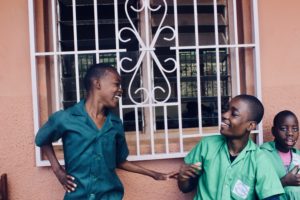
School in general is very different her, with punishment being mostly physical. Nothing too violent; slaps, pinches and ear-pulling are used liberally, even among the disabled. This can be hard to watch at first, but as I have learned over the course of my time here, it is important to understand the context of everything. Culturally, this type of punishment is accepted and even considered by some to be beneficial to a child. Similar to how it was in India, disabled children aren’t considered to know the difference between right and wrong and so respond only to punishment and reward. Rewards being scarce, teachers resort to punishment. The students, for the most part, are unfazed.
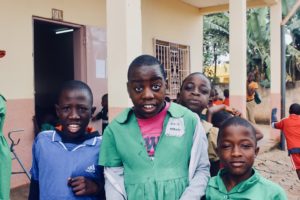
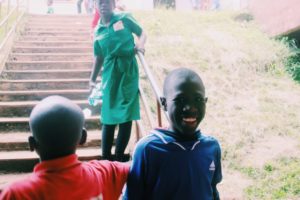
I will be spending my internship at Promhandicam exploring all the different sections of the institution. I have so far only been working at the specialized school; helping them learn to write letters, numbers and do simple equations plus basic skills like saying their names and how to properly communicate with others in society. It has been an extremely challenging, but also a progressively rewarding and eye-opening experience that I am so excited to be able to continue to explore.
